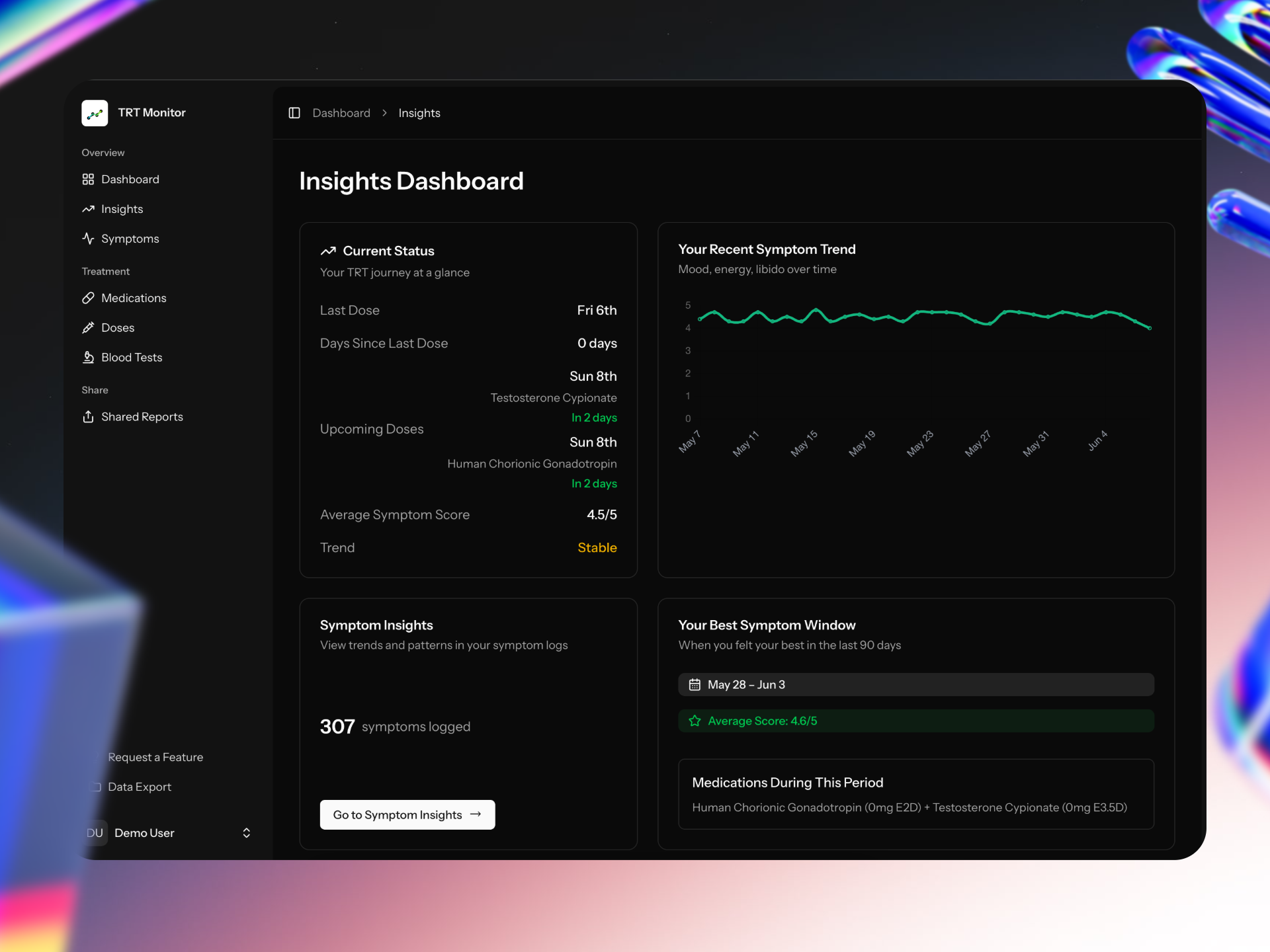Testosterone Replacement Therapy (TRT) can significantly improve your health and well-being, but it comes with potential side effects. Understanding and proactively managing these is key to a successful TRT experience.
Common TRT Side Effects & Solutions
Many men encounter mild side effects, especially initially:
- Acne & oily skin: Use skincare routines; consider dose adjustments if severe.
- Fluid retention: Typically temporary; reducing salt and stabilizing hormone levels helps.
- Mood changes: Adjust injection frequency to maintain stable testosterone levels.
- Gynecomastia: Monitor estradiol; adjust TRT dose or frequency as needed.
- Testicular shrinkage: Generally cosmetic; hCG can mitigate this effect (Mayo Clinic).
Serious Risks & Preventative Strategies
Though uncommon, some side effects require careful monitoring:
- Polycythemia (high red blood cells): Regular blood testing; therapeutic phlebotomy if needed.
- Prostate enlargement: Routine PSA screenings and symptom tracking.
- Sleep apnea: Manage existing apnea proactively.
- Cardiovascular risks: Lifestyle management and regular cardiovascular checks.
- Blood clots: Stay active; monitor hematocrit closely (American Family Physician).
Regular monitoring dramatically reduces these risks (TRT Monitor Blood Work Schedule).
Importance of Regular Monitoring
Effective management involves regular bloodwork (total testosterone, estradiol, hematocrit, PSA) and vigilant symptom tracking. Tools like TRT Monitor simplify this, providing visual insights into how your body responds over time, making it easy to spot and manage side effects.

Managing Estradiol Levels (E2)
Balancing estradiol is crucial for minimizing side effects like gynecomastia or mood changes. Typically, dosage adjustments or more frequent injections stabilize estradiol naturally. Aromatase inhibitors should be used cautiously and only when symptomatic (PubMed).
When to Seek Immediate Medical Care
Contact healthcare immediately for symptoms like:
- Severe leg swelling (potential clot)
- Chest pain or breathing difficulty
- Acute urinary issues
- Signs of liver issues (jaundice, severe abdominal pain)
Lifestyle Management & TRT
Healthy lifestyle choices enhance TRT safety:
- Maintain a balanced diet
- Regular cardiovascular exercise
- Monitor weight and blood pressure
- Limit alcohol intake
Conclusion
TRT can dramatically enhance your life, and side effects, while possible, are manageable with awareness and proper monitoring. Stay proactive-track symptoms closely, maintain regular communication with your healthcare provider, and utilize resources like TRT Monitor for comprehensive insights.